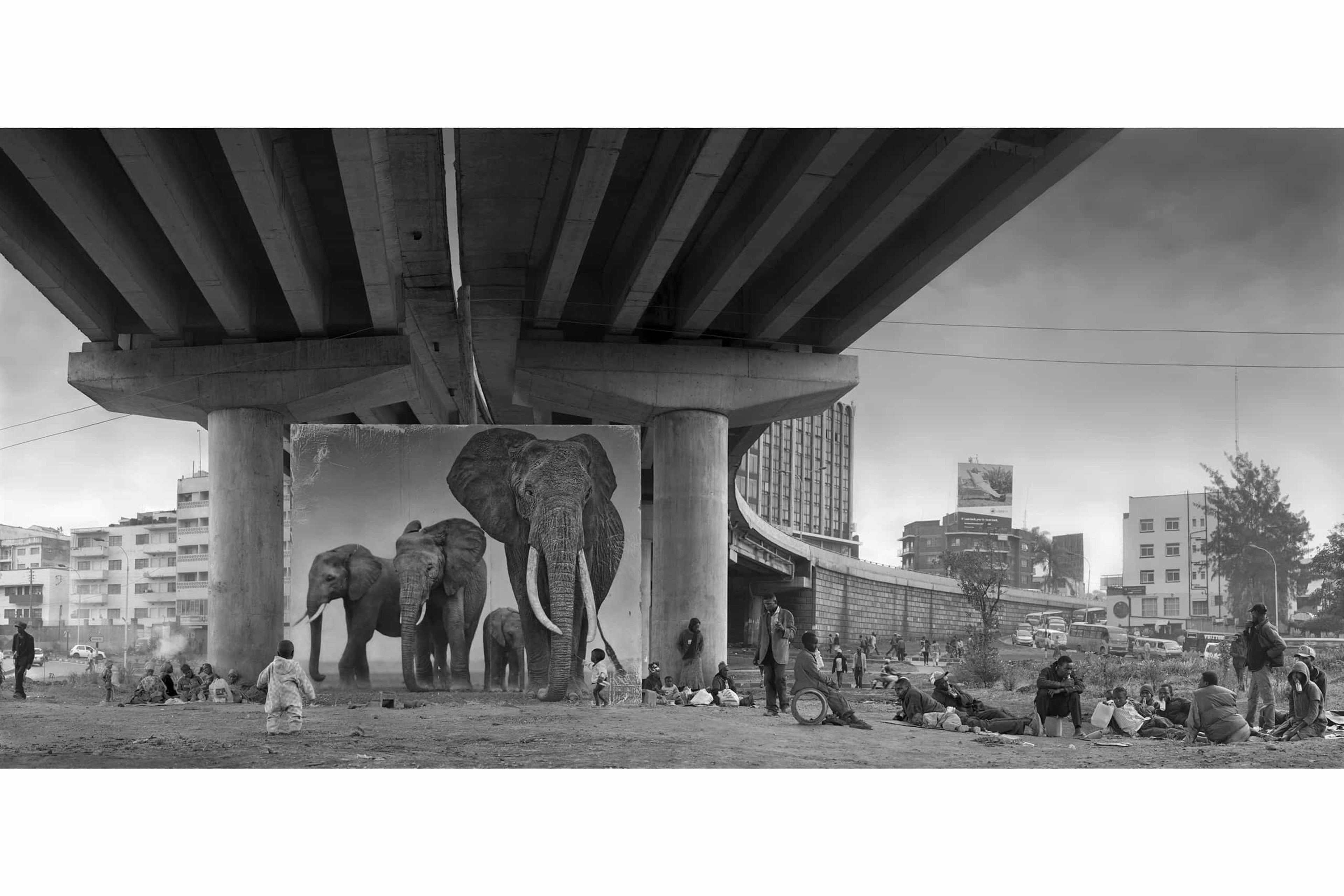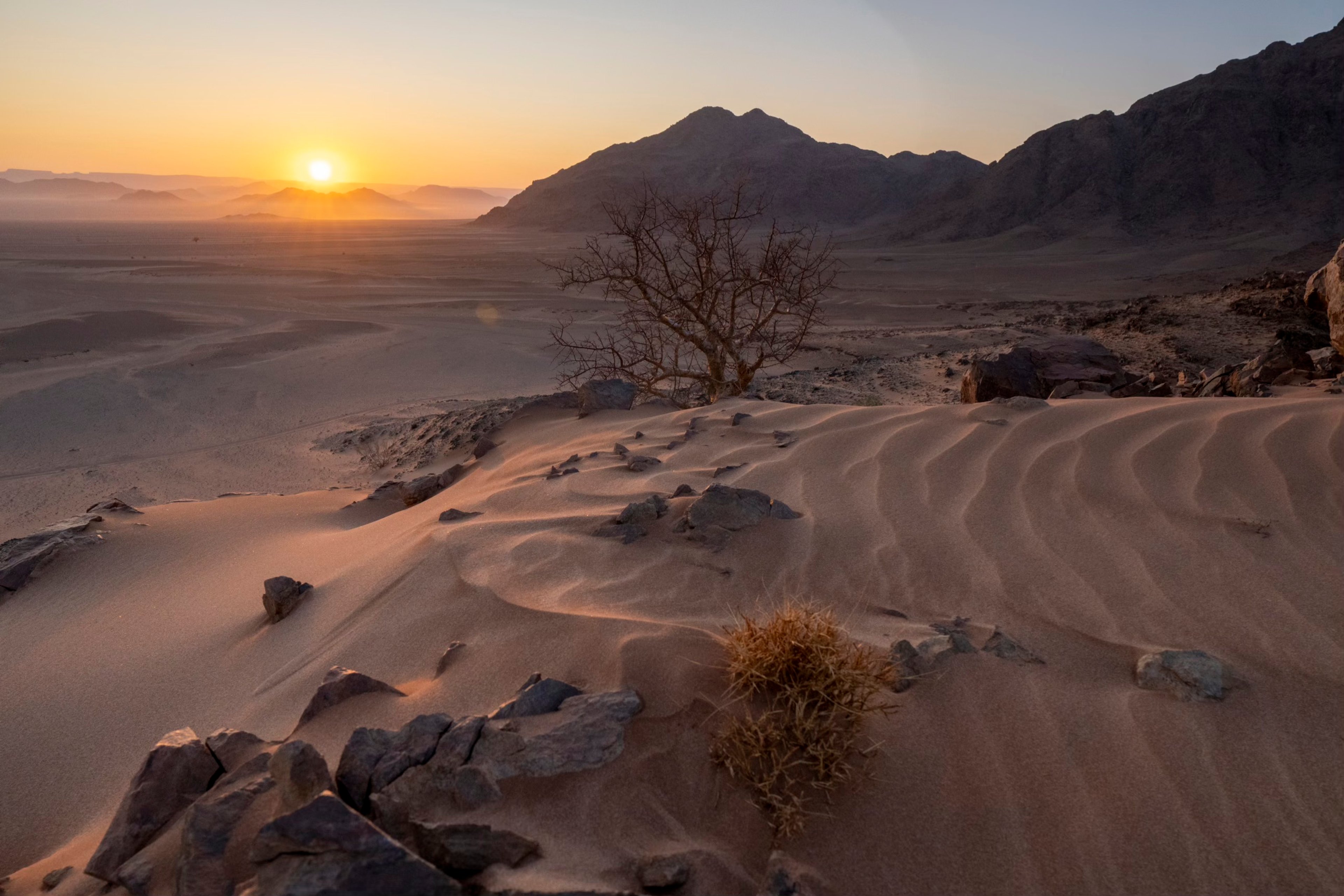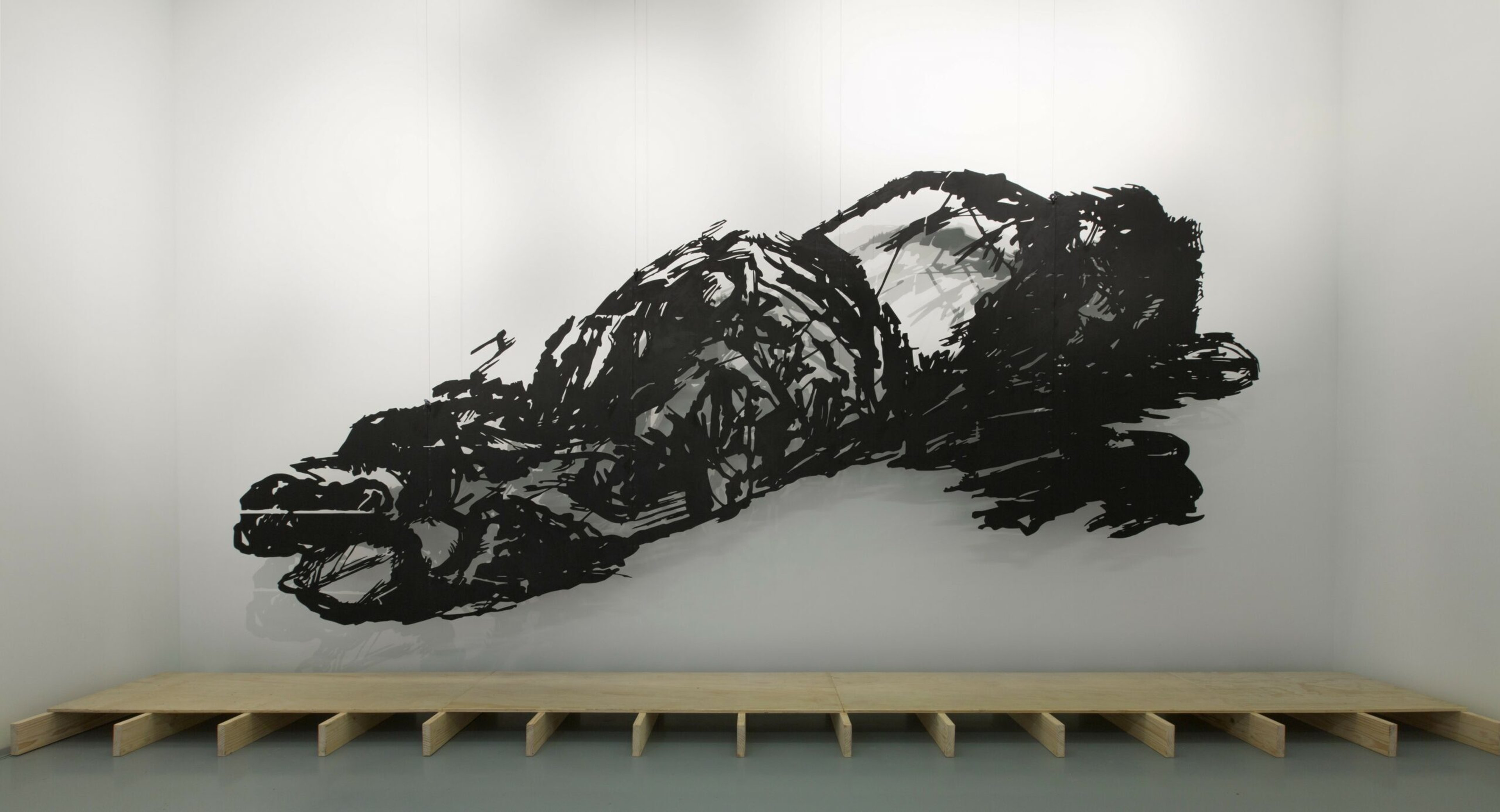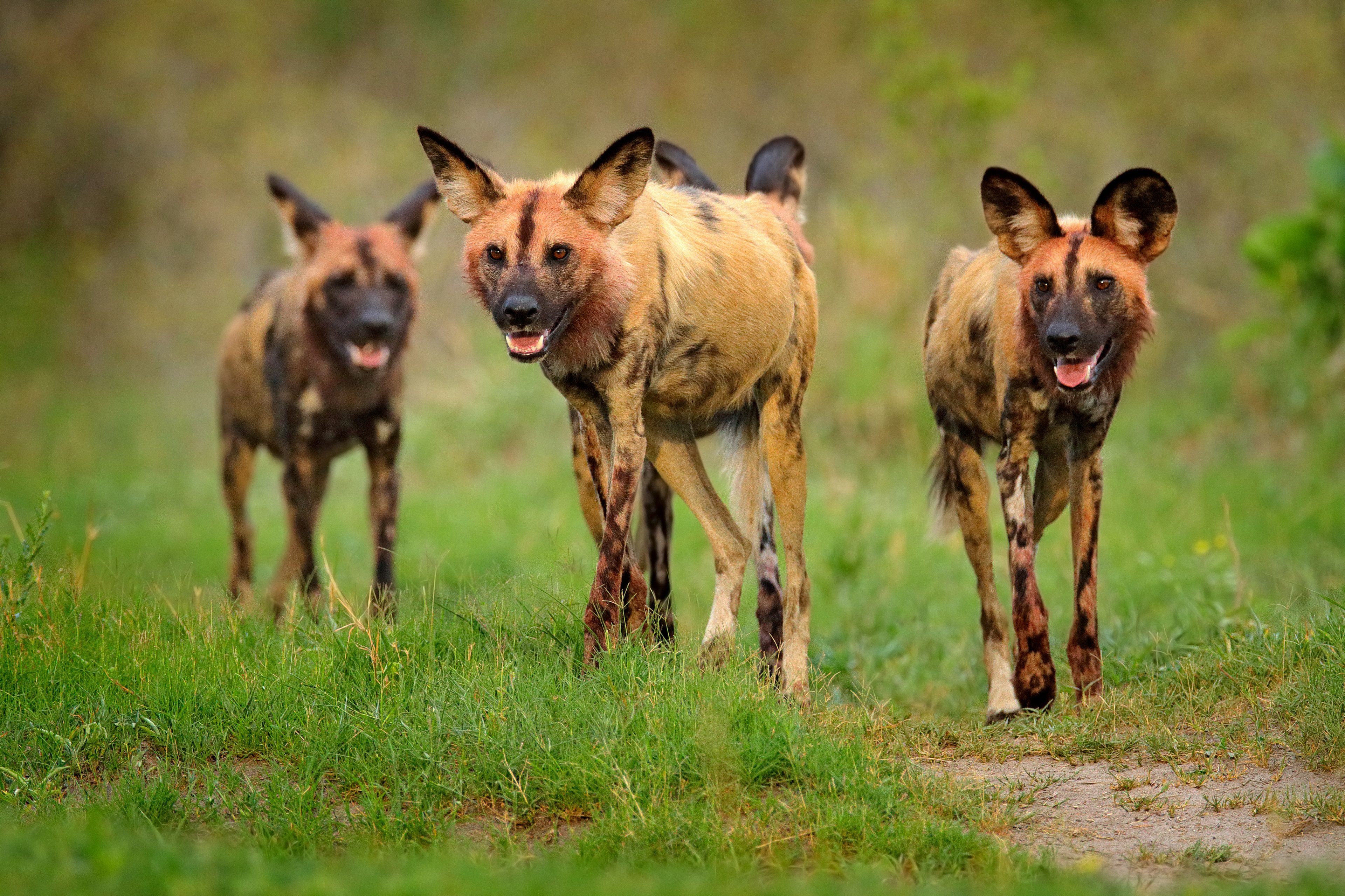We have long admired the work of photographer, artist and activist Nick Brandt, whose commentary on conservation is communicated through his powerful and profound photographs. None more so than Inherit The Dust, a disconcerting body of work that seeks to place the concept of conservation in context by way of iconic panoramic images of animals in the very places where they used to roam. Nick’s inspired idea of erecting life-size portraits of animals at various locations across Kenya, positioned within the context of urban development, factories, wasteland and quarries, offers a sobering observation on how much wildlife and wilderness we have lost.
"My plan had always been that the animals in the panels should effectively be ghosts in the landscape. With these animals driven from their habitat, I wanted the images to serve as a reminder of what was here before," Nick says. Take Alleyway with Chimpanzee, a portrait of a chimp placed next to a stream of sewage where perhaps a river once ran, or Underpass With Elephants, where a massive image of elephants is erected under a freeway in a space shared with unhoused people. Some of the animals in the panels appear to be looking out at these destroyed landscapes with sadness, as if lamenting the loss of the world they once inhabited. Upon deeper reflection, we see that it is not just the animals who are the victims in this out-of-control world, but humans, too.
"This is the most powerful body of work I’ve ever witnessed in communicating the severity of the climate crisis. The more people who see it, the better," says Deborah Calmeyer, CEO and founder of ROAR AFRICA. "If I had my wish, we’d have a massive exhibition of these life-sized pieces in Central Park, New York, with exhibits in Shanghai and Beijing as well. There is no other way to get the message out there, and I can’t thank Nick enough for the work he is doing to help save our wildlife."
Nick never planned to be a photographer or an activist. "Photography was simply a way for me to express my love of animals," explains Nick, who fell in love with Africa and its wildlife in 1995 when he was in East Africa to direct Michael Jackson’s Earth Song video. It was on a return trip to photograph portraits of the wild animals in Kenya’s Amboseli National Park in 2007 that Nick photographed a 49-year-old African elephant named Igor. "I was instantly drawn to Igor, both visually and internally," says Nick, who photographs animals much like he does humans. "He was a huge male in the prime of his life, and yet his gentle nature allowed me to gain his trust and photograph him quite close up." When Nick returned to the Amboseli two years later, he learned that Igor had been slaughtered by poachers. "It was utterly devastating, particularly as it was Igor’s level of trust with humans such as I, that might have allowed the poachers to get close enough to hack the tusks from of his face."





